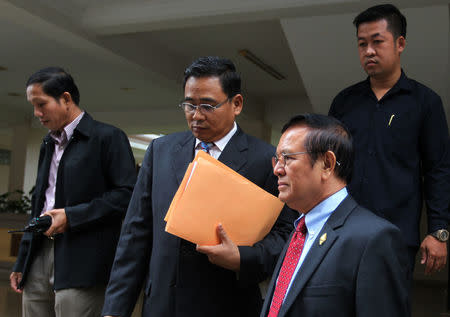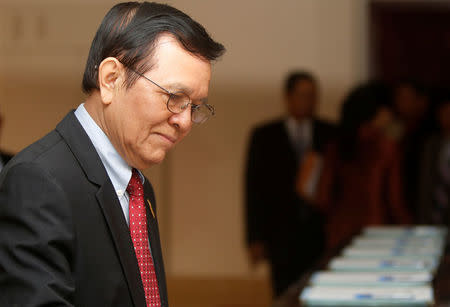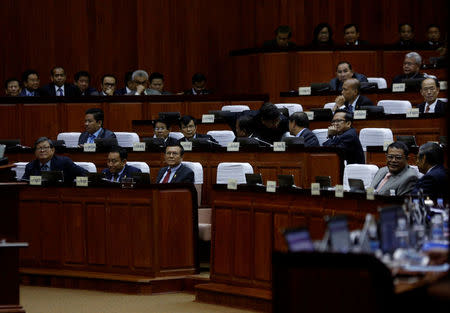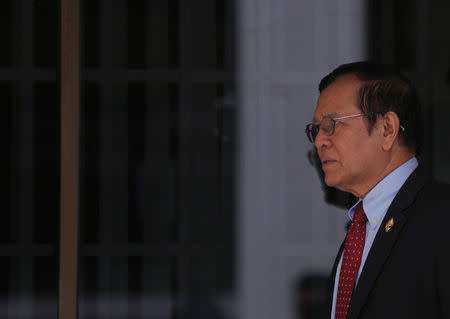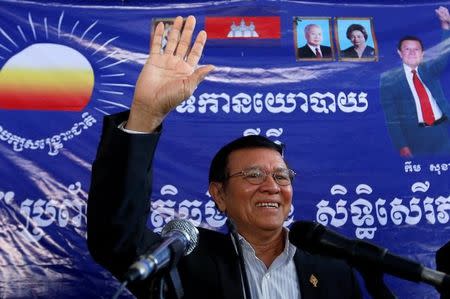Cambodia opposition leader returns to parliament after royal pardon
By Prak Chan Thul PHNOM PENH (Reuters) - The leader of Cambodia's opposition party returned to parliament on Wednesday after receiving a royal pardon, a move that could ease a year of political tension in the Southeast Asian country. The opposition complains that Prime Minister Hun Sen's ruling party has launched a crackdown in a bid to intimidate critics before a general election due in 2018. Kem Sokha, the acting leader of the Cambodia National Rescue Party (CNRP), said he would work with Hun Sen and his Cambodian People's Party (CPP) to end disputes. Kem Sokha was sentenced to five months in prison in September after failing to appear in court over a case against two lawmakers from his party. Since May he had been holed up at the CNRP headquarters in the capital, Phnom Penh, to avoid arrest, and he received a royal pardon at Hun Sen's request last week. Hun Sen, who has ruled Cambodia with an iron fist for 30 years, congratulated Kem Sokha on his appointment as parliament's minority leader on Wednesday and said he looked forward to working with the opposition leader. "He's my dialogue partner to discuss national issues," Hun Sen told parliament. Kem Sokha urged politicians to end their rhetoric. "What we need to do further is to find a national agreement so that our country can progress," he said. Cambodian opposition leader Sam Rainsy, who lives abroad in exile, said on social network Twitter that he remained the minority leader in parliament. "As CNRP president, I remain Minority Leader (as specified in National Assembly's internal rules). My counterpart is Hun Sen," Sam Rainsy tweeted on Monday. Hun Sen's strategy appears to drive a bigger wedge between the two opposition leaders by allowing Kem Sokha the space to assume more formal leadership while blocking Sam Rainsy's return, said Miguel Chanco, regional lead analyst of the Economist Intelligence Unit. "The CPP is hoping that it manages to crack the opposition's unity before the coming election cycle. A divided opposition is certainly easier to beat at the ballot box," Chanco said. (Editing by Amy Sawitta Lefevre and Clarence Fernandez)

